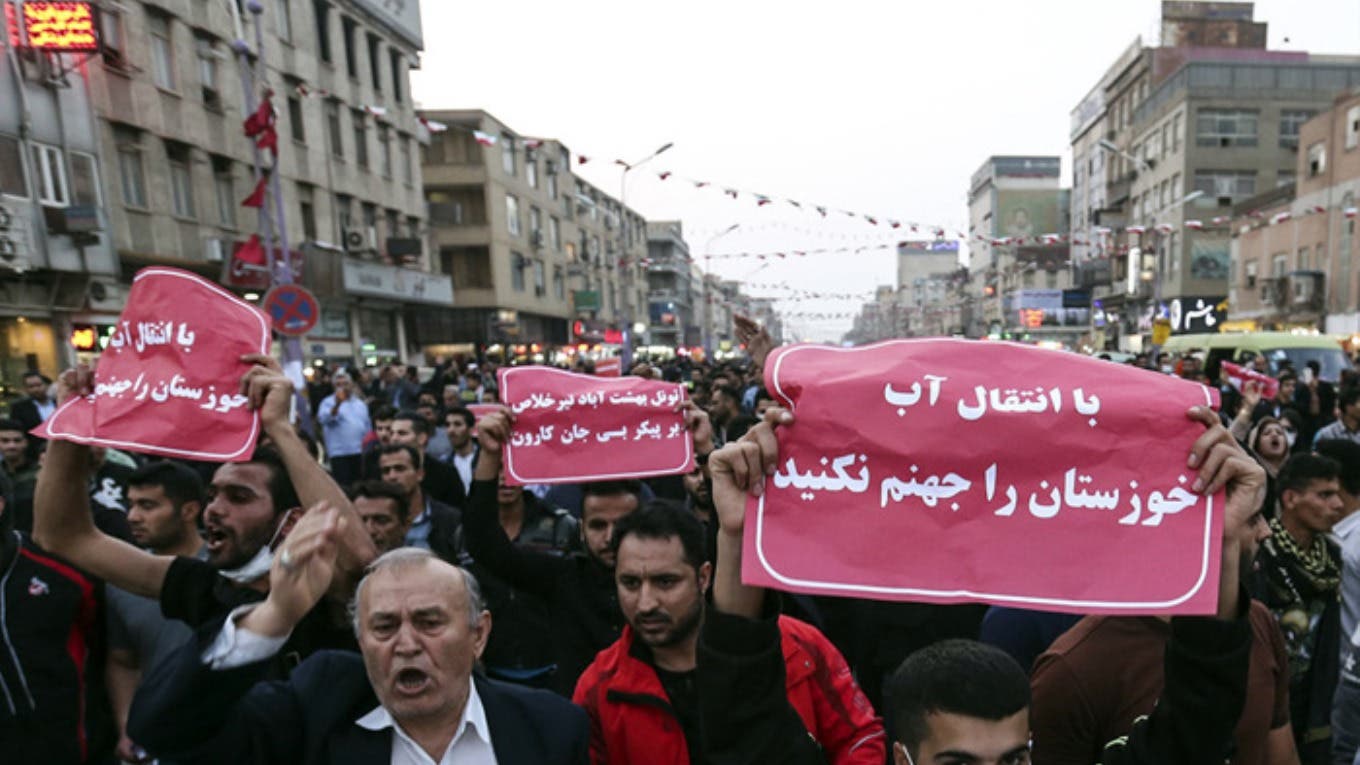As the world continues to assess US President Donald Trump’s decision to pull out of Syria and significantly decrease America’s foothold in Afghanistan, Iran has troubles kicking in from all corners.
With US sanctions beginning to bite significantly against the regime, the Iranian regime is finding it difficult on how to juggle these unprecedented and escalating measures, while demands of Tehran complying with international financial transparency regulations are hanging over the regime’s neck.
If Iran gives in to these global measures, their support for proxy groups across Syria, Lebanon, Iraq, Yemen and beyond will be severely tampered.
If the regime chooses to maintain its current stance, not only will the currently escalating economic embargoes expand, they will also gain a far more international image, with Europe, Russia and China having no choice but to distance from Iran.
‘Most powerful organization’
Following the US decision to pull out of the 2015 Iran nuclear deal, known as the Joint Comprehensive Plan of Action (JCPOA), the remaining members of the deal have emphasized on Tehran complying with standards set by the Financial Action Task Force (FATF), a Paris-based intergovernmental organization focusing on preventing money laundering and terrorism financing.
While most people may have never heard of the FATF, it is described by financial crime experts as “the most powerful organization” that has gone unnoticed by the commoners.
If the FATF finds a country in failure to abide by its standards, that country will face a blacklisting that has the watchdog urging members to carry out countermeasures – read sanctions – that can result in a complete prohibition of financial transactions.
Banks may be required to review and shut down correspondent accounts with Iranian banks, meaning they will be prohibited from launching overseas subsidiary branches, limiting business transactions, and going as far as imposing enhanced monitoring and reporting requirements on transactions in any way involving Iran.
Any hope?
It is certain that non-US banks and businesses exposed to the US financial system will not choose to defy Washington.
All the while, the European Union, in an effort by foreign policy chief Federica Mogherini, is pushing forward with a so-called special purpose vehicle. This payment system aims to shield European companies, and those from across the world, choosing to do business with Iran, from the damning effect of US sanctions.
The Iranian regime is disturbed by Europe’s delay in the SPV launching. All the while, it is hard to comprehend how this mechanism intends to work out if Tehran fails to bow before FATF demands.

Different perspectives
Many in the West have been falsifying an image of Iran having two political factions of hardliners and reformists. In fact, their perspectives only differ over how to better preserve and guarantee the regime’s survival.
Back in October, Iranian Foreign Minister Mohammad Javad Zarif relayed a message from Russia and China that Tehran needs to comply with the FATF or else Moscow and Beijing will not be able to continue their business with Iran. His deputy, Abbas Araghchi, voiced the same assessment this month. This was a portrait of the so-called reformists’ viewpoint.
The hardliners, on the other hand, comprising of Revolutionary Guards (IRGC) members, the top army brass, the clerical establishment and the judiciary, are kicking the can down the road on the FATF standards adoption.
Fears exist that approving and implementing the FATF will unveil sensitive financial information and impede the drive to fund Iran’s proxies across the Middle East and maybe even chip the wings of the IRGC Quds Force, the unit in charge of Iran’s extraterritorial military activities.
Rest assured Zarif and other “reformists” in Iran are no fans of actual change, transparency and major shifts in policy for the Iranian regime. They are only playing their roles in the overall masquerade directed by Iranian Supreme Leader Ali Khamenei, all aiming to prolong the lifespan of this regime.
Lose-lose
Iran’s regime was never able to actually benefit from the JCPOA in the long term. With the US pullout, the Iranian regime is in turmoil and the economy is going down the drain.
Renewed FATF countermeasures would add insult to injury for Tehran and has the potential of fueling public protests, a phenomenon that is becoming increasingly common across Iran.
Each day people from all walks of life are protesting in cities throughout the country, including workers, teachers, truckers, students and so forth. The regime is quite vulnerable, concerned over the undeniable reality that all these protests have the potential of quickly evolving into scenes of political demands. Protesters are constantly chanting:
“Let of go Syria, think about us” … “Our enemy is right here, they lie in saying it’s America”
The senior elite sitting on the throne in Iran are going the limits to prevent the transformation of these chants into “Death to Khamenei,” as witnessed so vividly in the December/January uprising that shook the very pillars of this regime just a year ago.
At the end of the day, the Iranian regime is in fact suffering from a “lose-lose-lose” situation:
– The JCPOA never provided any benefits to brag about;
– FATF measures bear the potential of crippling the regime’s economy;
– Popular protests are on the rise, threatening the regime at its core.
The months ahead will be demanding and the regime will be weakening at an alarming and deadly rate. It would be naïve for any international entity, government or private, to invest in the Iranian regime overcoming these hurdles.
Leave a Reply